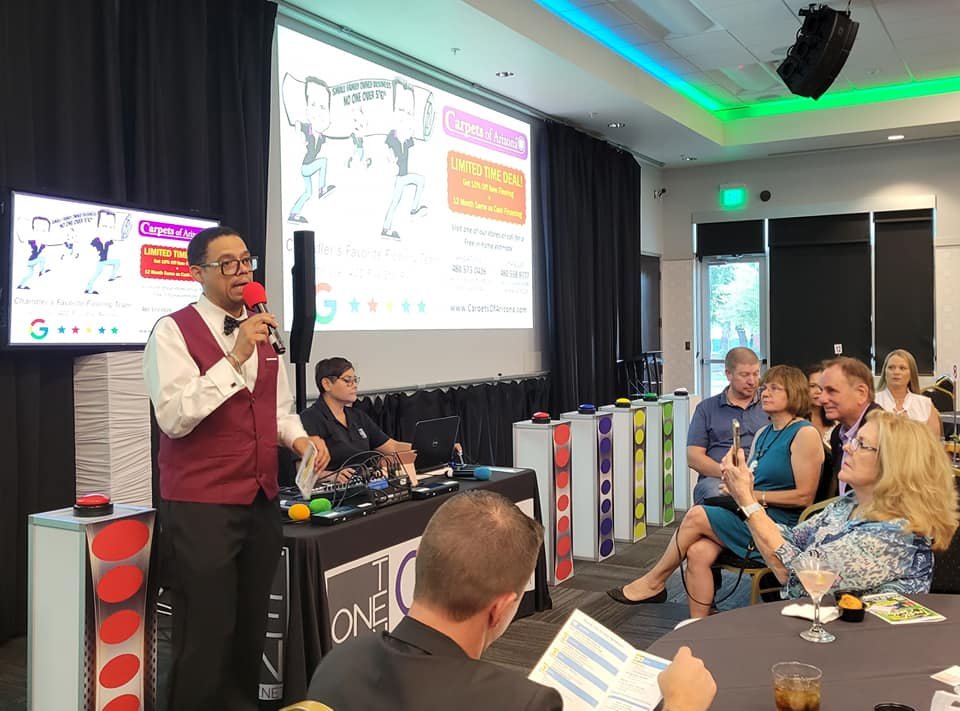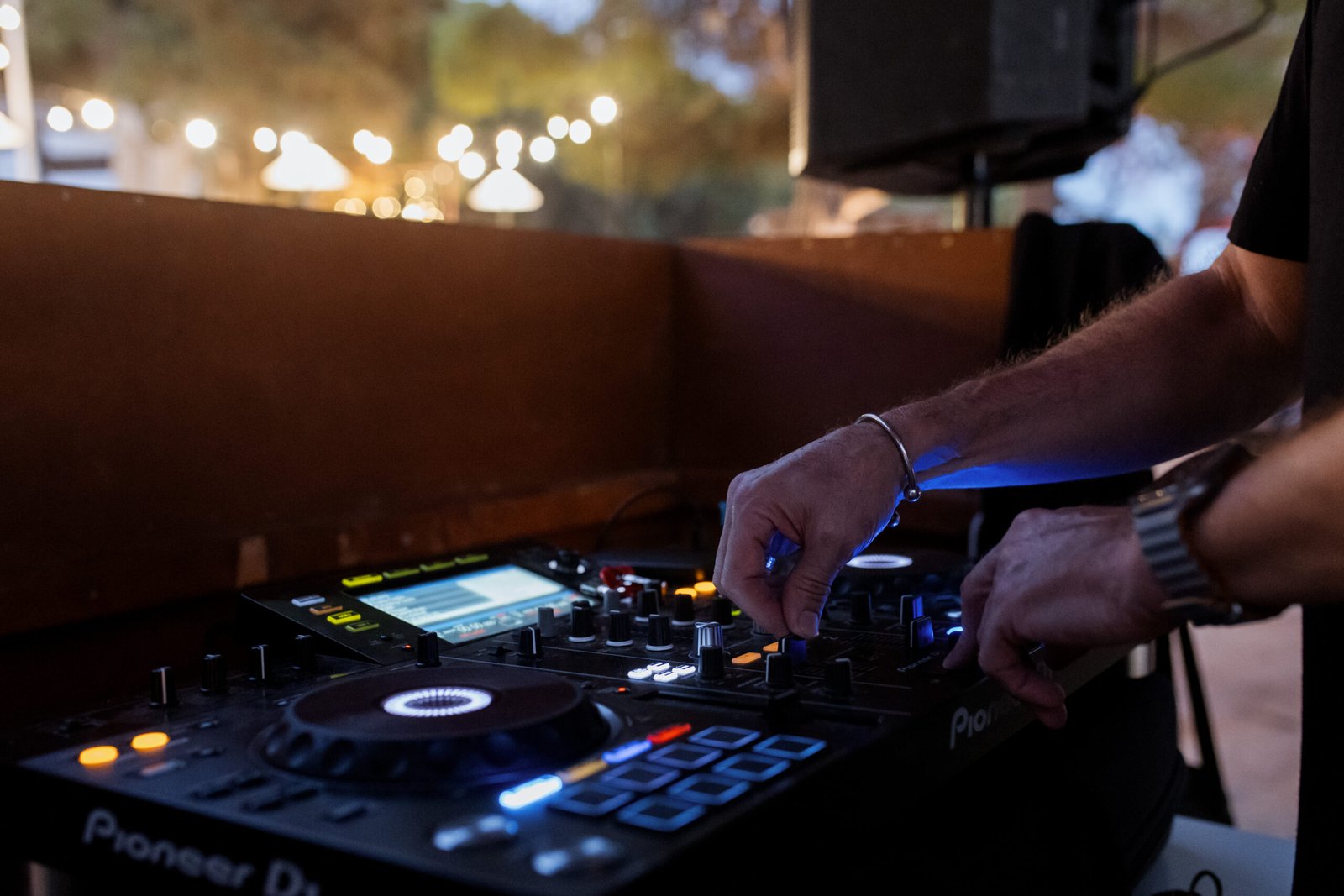What Makes a DJ Essential: It’s More Than Just Pressing Play

When you hear the term “DJ,” many people think of someone who plays music at parties or clubs. While this is undoubtedly part of their job, the role of a DJ goes far beyond simply pressing play on a playlist. In fact, many ask the question, “Do DJs actually do anything?” The answer is a resounding yes. DJs are the backbone of any successful event that involves music, whether it’s a club night, a wedding, or a festival. Their work requires a deep understanding of music, a knack for reading the crowd, and a technical proficiency that goes unnoticed by most attendees.
In this article, we will explore the many roles and responsibilities that DJs take on. From creating an unforgettable atmosphere to carefully curating a setlist, we will see how DJs are far more than just people who play music.
What Does a DJ Really Do?
A DJ’s primary role may seem simple—playing music—but there’s a lot more to it than that. At the most basic level, a DJ is someone who selects, mixes, and performs music to entertain an audience. However, this simple job description is just the surface of what a DJ actually does.
Creating the Atmosphere
One of the most important functions of a DJ is setting the mood and atmosphere for an event. Whether it’s an intimate gathering or a massive festival, the DJ is responsible for creating the emotional vibe that enhances the overall experience. DJs use music to influence the mood of a room, raise energy levels, or even slow things down for a more relaxed atmosphere.
For example, at a wedding, a DJ may shift between romantic, slow-paced songs and high-energy dance tracks to match the rhythm of the evening. Similarly, at a nightclub, they may adjust the tempo and intensity of the music throughout the night, ensuring that the crowd stays engaged and energized.
The DJ’s skill in reading the room and adjusting the music accordingly is crucial. While other event planners or performers may contribute to the vibe, the DJ’s job is to maintain a constant flow of energy through the music.
Curating the Playlist
A DJ’s job is not just about playing songs, but selecting them with precision. The process of curating a playlist for an event is a meticulous one. DJs need to consider the crowd, the venue, and the theme of the event when choosing which tracks to play. The playlist must not only match the mood but also keep the energy flowing seamlessly.
DJs are well-versed in various genres of music, from current chart-toppers to deep cuts that are perfect for specific moments. They also have an extensive knowledge of songs that work well when mixed together, creating an experience that is unique and dynamic.
This level of curation is a skill in itself. While anyone can make a playlist on a music streaming service, a DJ is trained to read the energy of a crowd and choose tracks that will resonate with them, keeping them engaged and excited.
Mixing and Transitioning
One of the most crucial elements of DJing is the ability to seamlessly transition between songs. While it may seem like a DJ is just playing one song after another, what they are actually doing is blending songs together in a way that feels natural and fluid. The process of mixing involves matching the tempo and key of songs to create smooth transitions that keep the energy of the crowd constant.
A DJ also uses various techniques, such as beatmatching, looping, and EQing, to enhance the music and keep the vibe consistent. Beatmatching is the art of aligning the beats of two different songs so that they blend perfectly, while looping allows the DJ to extend certain parts of a song to create a unique moment. EQing is the adjustment of frequencies in a track to ensure that each element of the music, from bass to treble, is balanced and sounds optimal on the sound system.
These techniques are often invisible to the audience but are what separates a professional DJ from someone who simply plays music.
The Technical Side of DJing
Many people wonder, “Do DJs actually do anything?” The technical side of DJing offers a clear answer to this question. A DJ needs to be skilled in operating various equipment, from turntables to digital controllers and software.
Equipment and Software Mastery
DJs use a wide range of equipment to perform. This includes turntables, mixers, controllers, and sound systems. While turntables are still used by some DJs, the majority now rely on digital DJ controllers that allow them to mix music via software. The software used for DJing can range from Serato to Traktor to Rekordbox, each offering different features and functionalities that cater to a DJ’s personal style and preferences.
A DJ’s ability to use this equipment effectively is essential for a seamless performance. They must understand how to set up and troubleshoot sound systems, use microphones when necessary, and even handle unexpected technical difficulties. The level of expertise required to master DJ equipment is not to be underestimated, as any malfunction can disrupt the performance and diminish the experience for the audience.
Live Performance and Showmanship
DJing is not just about technical skill—it’s also about performance. A DJ is often the focal point of the party or event, and their interactions with the crowd play a significant role in shaping the overall experience. This can involve everything from working the crowd into a frenzy with a particularly epic drop to subtly adjusting the vibe of the music when things need to slow down.
Good DJs have an innate sense of timing and showmanship. They understand when to ramp up the energy, when to pull back, and how to read a crowd’s reactions. They may make eye contact with the crowd, use hand gestures, or even speak into the microphone to create a deeper connection with the audience. It’s this connection that transforms a DJ set from just music into a memorable experience.
Handling Requests and Dedications
Another crucial part of a DJ’s role is handling song requests and dedications. While many DJs prefer to stick to their pre-selected setlist, accommodating a few requests can enhance the experience for the crowd. This is particularly true for private events such as weddings or birthdays, where the guests may want to hear their favorite songs.
However, managing song requests requires finesse. DJs need to be able to decide which requests work with the flow of the set and which ones would disrupt the vibe. They must do this while maintaining their credibility as a music curator, ensuring that the music still aligns with the overall theme and energy of the event.
The Role of the DJ in the Music Industry
Outside of performing at events, DJs are often influential figures in the music industry. Many DJs produce their own tracks, remix songs, or collaborate with artists to create original content. In fact, some of the most successful DJs are also well-known music producers who have made significant contributions to the industry.
The DJ is often the first person to introduce a new track or genre to the public. Their influence can shape trends and bring fresh sounds into the mainstream. In this sense, DJs are not just performers but also tastemakers and innovators within the music industry.
Conclusion
The role of a DJ goes far beyond just playing music. From creating a specific atmosphere to curating a playlist, mixing tracks, and even performing live, a DJ’s job involves a deep understanding of music and crowd dynamics. Technical proficiency with equipment, knowledge of sound systems, and the ability to read the crowd are just a few of the essential skills that DJs bring to the table.
So, when you ask, “Do DJs actually do anything?” the answer is clear. DJs are much more than just people who play music; they are artists, technicians, and showmen all rolled into one. They play a vital role in crafting memorable experiences and shaping the direction of the music scene.







